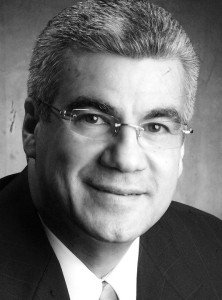This op-ed, by prominent Florida pastor Nino Gonzalez, originally appeared in Spanish in the latest edition of La Prensa. Here is the English translation.

A lot of people misread our poor communities. They think because people are financially poor, they must be intellectually poor. But we know all of our children have the ability to learn at the highest levels, and to live up to their God-given potential. We also know a key to making that happen is matching them to the learning environments that are best for them.
This is why I support school choice. And this is why I am so disappointed with the lawsuit that seeks to kill the Florida tax credit scholarship program.
A year ago, the teachers union filed suit to end the program, which is the biggest private school choice program in America. Never mind that it has been in existence for 14 years and serves 77,000 low-income children, including about 30,000 Hispanic children. And never mind that a judge ruled in May that the union did not have standing to sue, and that its claims of harm to public school students were “speculative.” The union decided to appeal, and its president promised to fight all the way to the Florida Supreme Court.
This is wrong. Freedom and choice are core American values, so why is education an exception? Why does the union want to block poor parents from schools that work for their children? There are no good answers.
The suit is even more wrong when you consider how many Hispanic students struggle. In 2014, only 50 percent of Hispanic 10th graders in Florida passed the reading test they must pass to graduate. The numbers were even worse in Central Florida. In Orange County, 46 percent passed. In Osceola, 41 percent. In Polk, 36 percent.
I don’t bring this up to disparage public schools. Many of them are working tirelessly. But other schools can help our children succeed too.
More than 1,500 private schools participate in the scholarship program, including 158 in Orange and Osceola. IEC Christian Academy of Orlando is one of them. It is associated with our church, and this year it is serving 231 students in grades K-10. About 200 are using tax credit scholarships.
Our school is small, so we tailor instruction to fit each child. We avoid bureaucracy. We pay special attention to security. Our school is also successful because it is faith-based. We educate our students to be excellent in academics and character. Our parents love this. I can’t tell you how many times they have come to me, beaming, because their children reminded them to pray before supper.
All these features combine to create a school that works. In this, we are not alone. Statewide data shows scholarship students tend to come from the lowest-income families, and were often the ones falling furthest behind in public schools. But the data also shows that once these students enroll in schools their parents choose, they make solid progress. We see students like this all the time.
We also see students like Anita. She’s from Peru. Her father is a custodian. Thanks to a tax credit scholarship, her parents could send her to IEC Christian Academy for many years, until she went to another school for high school. Now Anita is getting acceptance letters from Ivy League colleges.
Opponents want to end this? Their arguments don’t add up.
They say it drains money from public schools, but every financial impact study shows the program saves taxpayer money that can be re-invested in public schools. They say they don’t like state programs that allow students to enroll in privately operated schools, but there are five such programs in Florida – and the only one being sued, the scholarship program, is the only one that exclusively serves low-income students. They say there shouldn’t be state support for students in religious schools, yet there are no lawsuits against pre-K vouchers, Bright Futures for college or McKay scholarships for students with disabilities – which can be used in religious schools, too.
There are no good reasons for the lawsuit, but what a tragedy if it succeeds. Our children deserve schools that allow them to dream big and blossom. All the scholarships do is give them that opportunity.
How un-American it is to try and take that away from them.
Nino González is senior pastor at Iglesia El Calvario and superintendent for the Southeastern Spanish District of the Assemblies of God.


